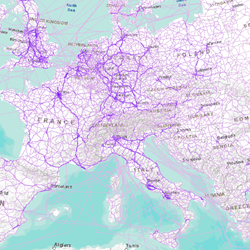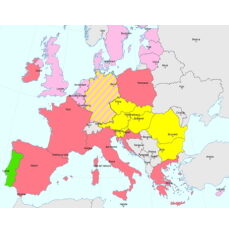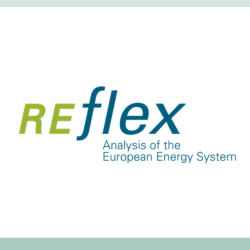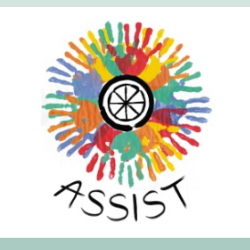- All
- African projects
- assessment
- assessment selected projects
- Assessment selected projects 2
- Assessment selected projects 3
- Assessment selected projects 4
- ASTRA
- Cost Benefit Analysis
- Electric mobility and ITS
- MOMOS
- planning
- planning selected projects
- planning selected projects 2
- planning selected projects 3
- planning selected projects 4
- planning selected projects 5
- projects
- Railways projects
- research
- research selected projects
- research selected projects 2
- research selected projects 3
- studies
- studies selected projects 1
- studies selected projects 2
- studies selected projects 3
- studies selected projects 4
- studies selected projects 5
- TRTingegneria
- TRUST
- urban mobility
- Impact assessment accompanying the revision of Eurovignette Directive for Heavy Goods Vehicles charging The “Eurovignette” Directive provides a detailed legal framework for charging heavy goods vehicles (HGVs) for the use of certain roads. Following ex-post evaluations of the current legislative framework, the Commission intends to assess the potential impacts of options for a possible revision of the legislative act. The impact assessment study will help substantiate the specific problems linked to charging of vehicles and to design policy options in this field. TRT supports the quantitatve assessment of the impacts of the policy options through the use of European scale models ASTRA and TRUST.
- Support Study for the Impact Assessment Accompanying the Revision of the Eurovignette Directive (1999/62/EC) The charging of heavy goods vehicles (HGVs) for the use of road infrastructure in Europe is governed by Directive 1999/62/EC (the “Eurovignette” Directive). The Directive aimed to achieve step-wise harmonisation of vehicle taxes and establishment of fair mechanisms of infrastructure charging. The general objective of the proposed revision of Directive 1999/62/EC is to promote financially and environmentally sustainable and socially equitable (road) transport through wider application of the ‘user pays’ and ‘polluter pays’ principles (fair and efficient pricing). This study supported the DG MOVE experts in evaluating the impact of the new Directive analysing several interventions trough three different models: ASTRA (to estimate the impacts on the transport and economy systems), TRUST (to estimate the impacts on the traffic distribution), PRIMES-TREMOVE (to estimate the trend of the vehicle fleet). The model suite covers the entire transport system (e.g. transport activity represented at Member State level, by origin-destination and at link level, technologies and fuels at Member State level, air pollution emissions at Member State and link level and CO2 emissions at Member State level) and its macro-economic impacts. The modelling is complemented by a literature review and stakeholder consultation. Input from stakeholders is gathered via an online public consultation and a targeted consultation (mainly via interviews, with some written contributions) that gathers more detailed views and factual information on the considered policy options. For more information Support Study for the Impact Assessment Accompanying the Revision of the Eurovignette Directive (1999/62/EC), Final Report
- REFLEX, a project funded by the Horizon 2020 EU research program, focused on the analysis of the European Energy System under the Aspects of Flexibility and Technological Progress The core objective of the REFLEX project is to analyse and evaluate the development towards a low-carbon energy system with a focus on flexibility technologies in the EU to support a better system integration of Renewable Energy Sources. The project, lead by University of Dresden (Germany), identifies and assesses the most relevant low-carbon technologies and flexibility options in the mobility, heat and electricity sectors for a sustainable and cost-effective transformation of the European energy system. The analysis is based on a modelling system that considers the full extent to which current and future energy technologies and policies interfere and how they affect the environment and society while considering technological learning of low-carbon and flexibility technologies. In the REFLEX project TRT provides expertise in the analysis of the impact of flexibility and technology options on mobility and transport. Both diffusion of alternative technologies in the vehicle fleet and energy and transport policy measures have been considered to analyse the decarbonisation pathway in the transport sector. To this end, the ASTRA system dynamic strategic model simulates the transport system in linkage with the economy, the environment and the energy systems. It is therefore capable to represent long term impacts of transport policies not only on mobility but also on wider aspects such as economic growth or greenhouse gas emissions. In comparison to all other energy sectors, the transport sector increased its GHG emissions since 1990. These emissions need to be reduced by 2050 by at least 60% relative to 1990. Considering the continuous growth of passenger and freight transport demand, strong and timely responses are required at the policy level. Within the REFLEX project, a reference scenario (Mod-RES) and two ambitious policy scenarios (High-RES) are simulated with the ASTRA model (under consideration of global learning for batteries through coupling with the TE3 model) and flexibility potential provided for the electricity sector. Results indicate that a bundle of complementary measures (boosting transport system energy efficiency, supporting the electrification of road transport and promoting alternative fuels )is required to support and accelerate the transition. For more information Brochure Policy brief on Transport trends in the context of future energy scenarios Paper on Investigating the impact of e-bikes on modal share and greenhouse emissions with the ASTRA model. Detailed techno-economic assessment of low-carbon technologies focusing on flexibility options and applying bottom-up sectoral models and demand projection models of the heat, electricity and transport sector, download deliverable. Application of social environmental life cycle assessment (eLCA and sLCA) to analyse and compare environmental impacts, social risks and external costs due to life cycle-based environmental impacts related to the European energy systems for the three envisaged REFLEX scenarios, download deliverable. Document providing a short but concise overview of the main findings for the different sectors and a bundle of policy recommendations derived thereof. The book “The Future European Energy […]
- ASSIST – ASsessing the Social and economic Impacts of past and future Sustainable Transport policy in Europe The main objective of the ASSIST project (ASSessing the Social and economic Impacts of past and future Sustainable Transport policy in Europe) was to provide the EU with sound policy advice on the possible social and economic impacts of future sustainable transport policies that would contribute to the strategic objectives of the EU given by the Lisbon Strategy, the Sustainable Development Strategy and the EU-2020 strategy. The role of TRT concerned the modelling line, as leader of the development of the new tool in cooperation with the project leader Fraunhofer-ISI (Germany). Other partners are NEA (The Netherlands), ProgTrans (Switzerland), FŐMTERV (Hungary), CNRS-LET (France).




